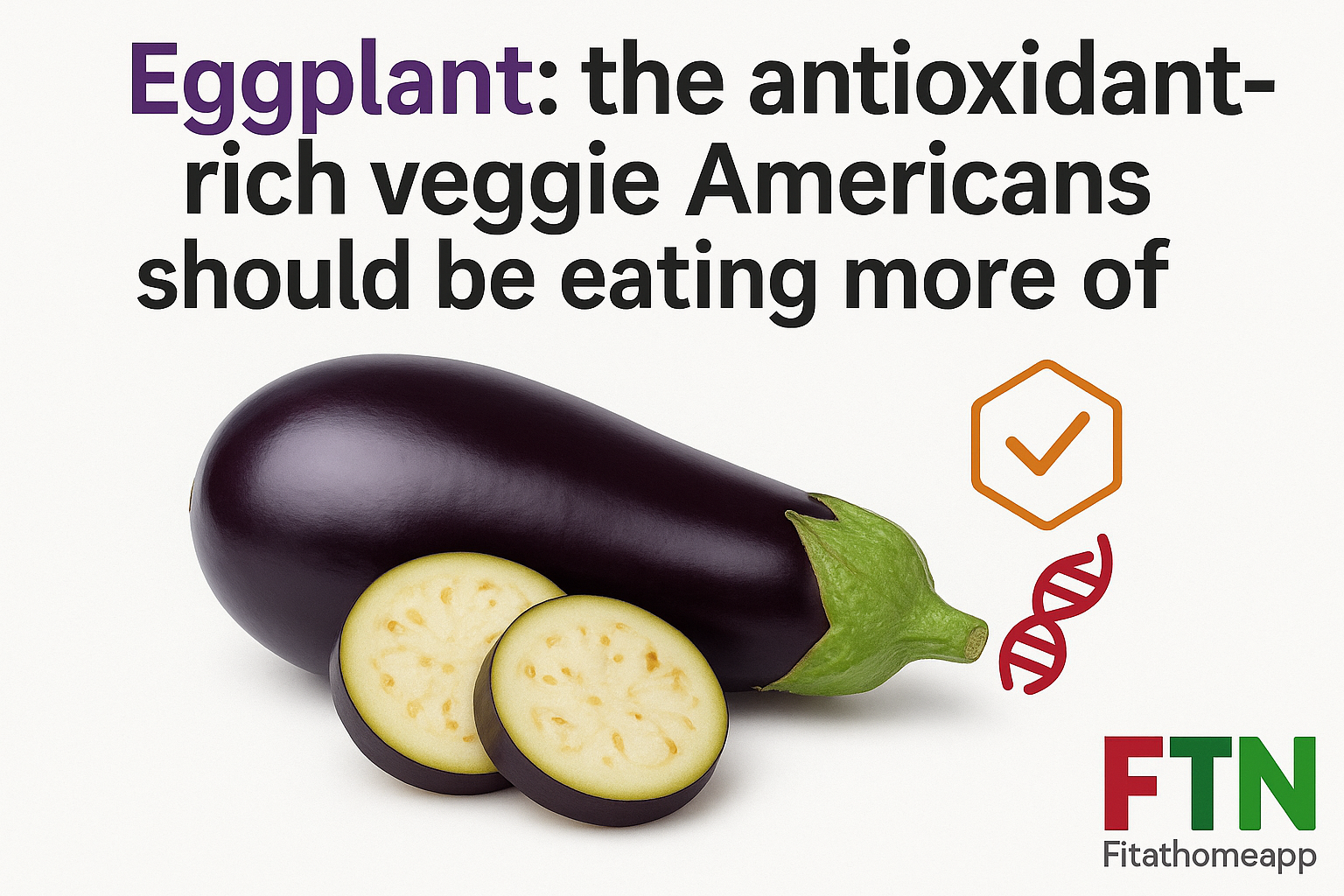Eggplant: The Underrated Superfood Every Healthy Kitchen Needs
Why Eggplant Deserves a Place in Your Diet
Eggplant, also known as aubergine, is one of the most overlooked yet incredibly nutritious vegetables you can include in your diet. Originally cultivated in India over 2,000 years ago, this colorful plant has made its way into kitchens worldwide—and for good reason. It’s low in calories, high in antioxidants, and packed with nutrients that support heart health, digestion, and weight management.
Eggplants come in various shapes and shades, from deep purple globes to slender Japanese varieties. Beyond their beauty, they’re rich in fiber, potassium, vitamins B1, B6, and C—making them a valuable part of a balanced diet.
A Nutrient Powerhouse With Heart-Healthy Benefits
One of eggplant’s greatest strengths lies in its antioxidant content, especially nasunin, which is found in the purple skin. Nasunin helps protect brain cells from oxidative stress and supports healthy blood flow. Another antioxidant, chlorogenic acid, offers anti-inflammatory and anti-diabetic benefits and may even help with weight control.
In terms of heart health, the fiber and potassium in eggplant can help reduce cholesterol and improve blood pressure. These benefits make it an excellent food for those looking to reduce their risk of cardiovascular disease without relying on costly superfoods.
Weight Management and Blood Sugar Control
Trying to eat lighter without sacrificing satisfaction? Eggplant is your friend. With only about 35 calories per cup when cooked, it’s filling without being heavy. The fiber content helps control appetite and regulate blood sugar—ideal for those managing diabetes or aiming to maintain a healthy weight.
It also fits seamlessly into vegetarian, vegan, and low-carb lifestyles. Thanks to its meaty texture, eggplant can even serve as a satisfying meat alternative in many dishes.
Easy and Delicious Ways to Cook Eggplant
Eggplant’s biggest appeal might just be its versatility. Whether you grill it, roast it, bake it, or blend it into dips like baba ghanoush, there are endless ways to enjoy this vegetable. Popular dishes include:
Grilled eggplant slices with olive oil and herbs
Eggplant Parmesan, baked with marinara and cheese
Ratatouille, a hearty Mediterranean stew
Stuffed eggplant, filled with quinoa or lean meats
Roasted eggplant tacos, for a modern twist on a classic favorite
Pro tip: Lightly salting sliced eggplant before cooking helps draw out any bitterness and improves texture.
Debunking the Myths: Eggplant Is Not Bitter or Difficult
Many avoid eggplant due to its reputation for being bitter or difficult to prepare. However, modern varieties are much milder, and proper cooking techniques eliminate any undesirable flavors. Don’t be intimidated—eggplant is easier to cook than it gets credit for!
It’s also safe and nutritious for most people, despite belonging to the nightshade family. Unless you have specific allergies or sensitivities, there’s no reason to avoid it.
Sustainable, Affordable, and Locally Available
Eggplant is also a great option for eco-conscious consumers. It requires fewer resources to grow than many other crops and is widely available in local markets. Buying it locally not only reduces your environmental footprint but also supports your community’s farmers.
Plus, it’s budget-friendly. Compared to trendier superfoods, eggplant offers excellent nutritional value at a fraction of the cost.
Final Thoughts: Embrace Eggplant for a Healthier You
Eggplant is a nutrient-rich, low-calorie vegetable that can benefit your heart, brain, digestion, and overall wellness. Its flavor, texture, and versatility make it a great choice for creative cooking, whether you’re following a specific diet or just looking to eat healthier.
So next time you’re at the grocery store, don’t pass up this purple powerhouse. From comforting classics to modern dishes, eggplant can elevate your meals and support a more vibrant, balanced lifestyle
Personal Take on the Video
This video spotlights eggplant as more than a side dish—it positions it as a key recovery food by emphasizing its antioxidant properties that help muscles bounce back.Antioxidant Protection Nasunin—found in eggplant skin—actively protects cell membranes from oxidative damage.
Heart & Brain Health Compounds like chlorogenic acid help reduce inflammation and support healthy blood flow.
Weight & Blood Sugar Support Low-calorie, fiber-rich, and stabilizes blood sugar—great for satiety and metabolic balance

